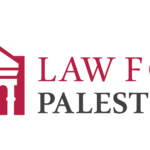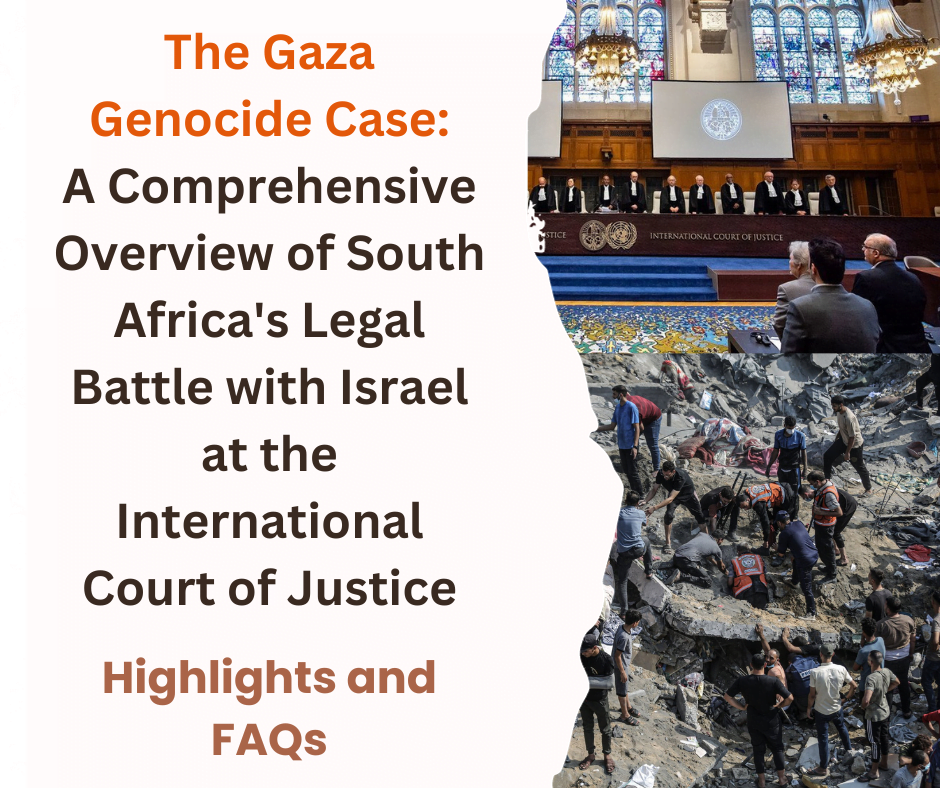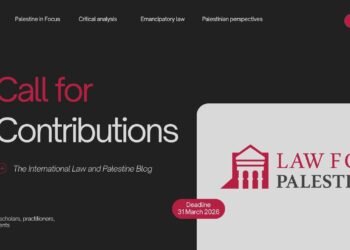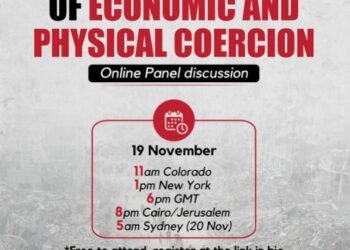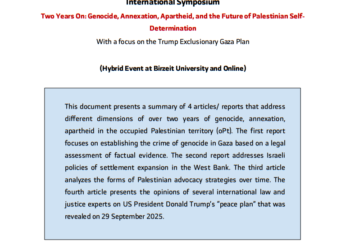The Gaza Genocide Case: A Comprehensive Overview of South Africa’s Legal Battle with Israel at the International Court of Justice || Highlights and FAQs
Prepared by Law for Palestine’s team: Leela Jadhav, Kathryn Ravey, James Henderson, and Anisha Patel
For a PDF version of this summary, click here to read/download.
CONTEXT
Since the 7th of October 2023, Israel has launched a continuous assault upon Palestinians in the Gaza Strip, indiscriminately targeting civilians and protected objects in violation of international law. It has become clear from the scale of the attacks against Gaza that Israel is attempting to conduct a genocide, with many academics and world leaders accusing Israel of conducting a genocide against Palestinians within Gaza. On the 29th of December 2023,following 83 days of non-stop onslaught by Israeli armed forces, South Africa (SA) filed an application instituting proceedings against Israel (IL) in front of the International Court of Justice (ICJ), concerning alleged violations by Israel of its obligations under the Convention on the Prevention and Punishment of the Crime of Genocide (the “Genocide Convention”) in relation to Israel’s assault upon Palestinians in the Gaza Strip.
SA argues that “[t]he acts and omissions by Israel complained of by South Africa are genocidal in character because they are intended to bring about the destruction of a substantial part of the Palestinian national, racial and ethnic group, that being the part of the Palestinian group in the Gaza Strip (‘Palestinians in Gaza’).”[1]
The Application is notable for its use of the erga omnes partes standing (“in relation to everyone”), which was updated following in The Gambia’s proceedings against Myanmar in 2019. In international law, the “erga omnes partes” doctrine pertains to obligations that a state owes to the international community as a whole, extending beyond specific bilateral or multilateral agreements. This concept implies that fundamental principles and norms, such as prohibitions against genocide, are obligations shared by all states towards the global community. Violations of these obligations are considered offenses against the international order, granting any state the right to take action to ensure their protection.
SA’s application contains a Request for the Indication of Provisional Measures, requiring the court to make an initial ruling on the case, in order to “protect against further, severe and irreparable harm to the rights of the Palestinian people under the Genocide Convention”[2] and to ensure Israel’s compliance with its obligations under the Genocide Convention not to engage in genocide, and to prevent and to punish genocide. Importantly, provisional measures have a lower threshold of proof, as “[t]he Court does not have to determine that all of the acts complained of are capable of falling within the provisions of the Convention”.[3]This reduced burden of proof means that the court doesn’t have to conclusively prove that all the actions within the application fall within the provisions of the Convention, allowing for a more flexible and expedited process when requesting interim measures before a full case is heard.
KEY POINTS FROM THE APPLICATION
The comprehensive 84-page document primarily consists of factual information and empirical evidence gathered from various sources. These include reports from UN Special Rapporteurs, official UNOCHR broadcasts, accounts from journalists on the ground in Gaza, and reputable NGOs’ reports. The application focuses on the actus reus elements (physical actions taken in committing a crime) over the mens rea elements (the mental elements of the crime; the intent to commit the crime). This indicates that the purpose of SA’s application is to push for provisional measures to halt the ongoing attacks on Palestinians rather than argue full case of genocide, which will occur much later, given the ICJ’s backlog of cases.
SA states, at the time of the publication, that Israel has “killed in excess of 21,110 named Palestinians, including over 7.729 children – with over 7,780 others missing, presumed dead under the rubble”.[4] The document went on to state that IL has injured over 55,243 other Palestinians and that “Israel has also laid waste to vast areas of Gaza, including entire neighbourhoods, and has damaged or destroyed in excess of 355,000 Palestinian homes”.[5]
Importantly, SA contextualises Israel’s genocide with reference to “the broader context of Israel’s conduct towards Palestinians during its 75-year-long apartheid, its 56-year- long belligerent occupation of Palestinian territory and its 16-year-long blockade of Gaza”.[6]Notably, the application states that “acts of genocide inevitably form part of a continuum”,[7] emphasising the importance of understanding current events from the lenses of Israeli occupation, subjugation and colonisation, rather than narrowly through the events of October 7th.
The primary focus of the application is on Israel’s assault on Gaza, with limited reference to the occupied West Bank and East Jerusalem, as well as the attacks launched on Israel by Hamas on October 7th. While condemning the attacks, the application underscores that there can be no justification for violating the Genocide Convention, as observed in Israel’s assault.
The SA application extensively details several categories of genocidal acts within its actus reus analysis, namely the killing of Palestinians in Gaza, causing them serious bodily and mental harm, and inflicting on them conditions of life calculated to bring about their physical destruction. These acts are attributable to Israel, which has not only failed to prevent genocide but is actively committing genocide. Furthermore, Israel has violated and continues to violate other fundamental obligations under the Genocide Convention including “failure to prevent or punish direct and public incitement to genocide by senior Israeli officials and others”.[8] The application details facts and statistics highlighting the extent of Israel’s harm, for example, as evidence of genocidal action:
“(O)ver 21,110 Palestinians are reported to have been killed since Israel began its military assault on Gaza, according to the Palestinian Health Ministry, at least 70 per cent of whom are believed to be women and children. An additional estimated 7,780 people, including at least 4,700 women and children, are reported missing, presumed dead under the rubble of destroyed buildings — dying slow deaths — or decomposing in the streets where they were killed”.[9]
The mens rea analysis uses a variety of statements made by Israeli officials as evidence of genocidal intent. SA points to repeated statements made by Israeli state representatives, including explicit statements of intent from both the Prime Minister and President, as well as statements that infer genocidal intent regarding the conduct of Israel’s military operation in Gaza.
Of note is the significant attention given to Special Rapporteur reports and UNHRC working groups and fact-finding missions. While this has not been extensively used in previous cases brought before the ICJ, it is hoped that the court will positively consider such evidence due to the high quality and informative nature of UN reports. Although the application asserts its reliance on statements, reports from United Nations chiefs and bodies, non-governmental organizations (NGOs), and eye-witness accounts from Gaza, including those from Palestinian journalists on the ground, it predominantly leaned towards international sources such as the United Nations and civil society organizations (CSOs), rather than drawing extensively from Palestinian sources.
Reading the application, it is clear that SA’s intent was to focus on the establishment of the provisional measures to halt the ongoing violence. Importantly, the primary focus at this stage is on establishing that the acts “are capable of falling within the provisions of the Convention”.[10] This means, rather than proving the case of genocide in its entirety, SA must prove that the current situation could amount to genocide, ultimately making the threshold of the burden of proof more lenient.
NAVIGATING THE SOUTH AFRICAN APPLICATION
| TITLE key sections | [Paragraph no] | Page no | |
| I. | INTRODUCTION | [1] – [7] | 1-4 |
| II. | JURISDICTION OF THE COURT | [8] – [17] | 4-9 |
| III. | THE FACTS | [18] – [109] | 9-70 |
1. The Gaza strip 2. The West Bank (including East Jerusalem) 3. The attacks in Israel of 7 October 2023
1. Killing Palestinians in Gaza 2. Causing serious bodily and mental harm to Palestinians in Gaza 3. Mass expulsion from homes and displacement of Palestinians in Gaza 4. Deprivation of access to adequate food and water to Palestinians 5. Deprivation of access to adequate shelter, clothes, hygiene and sanitation to Palestinians in Gaza 6. Deprivation of adequate medical assistance to Palestinians in Gaza 7. Destruction of Palestinian life in Gaza 8. Imposing measures intended to prevent Palestinian births
|
[18] – [20]
[21] – [31] [32] – [39] [40] – [42]
[43] – [44] [45] – [50]
[51] – [54]
[55] – [60]
[61] – [70] [71] – [75]
[76] – [87] [88] – [94]
[95] – [100] [101] – [107] [108] – [109] |
||
| IV. | THE CLAIMS OF SOUTH AFRICA | [110] | 70-71 |
| V. | THE RELIEF SOUGHT | [111] | 71-72 |
| VI. | REQUEST FOR PROVISIONAL MEASURES | [112] – [147] | 72-84 |
|
[117] – [119]
[120] – [128] V [129] – [135] [136] – [143] [144] – [147] |
||
| VII. | RESERVATION OF RIGHTS | [148] | 84 |
| VIII. | APPOINTMENT OF AGENT | [149] – [151] | 84 |
Questions and Answers
WHAT IS THE ICJ
The International Court of Justice (ICJ) is the primary judicial organ of the UN. Its role is to settle legal disputes submitted by one or more states in accordance with international law and to give advisory opinions on legal questions referred to it by the UN General Assembly (UNGA) or Security Council (UNSC).
The ICJ is composed of 15 judges, each of a different nationality, elected for nine years by the UNGA and the UNSC (art. 3 of the Statute of the ICJ). The judges must be equitably geographically distributed and chosen in such a way as to ensure the representation of the principal legal systems of the world (art. 9 of the Statute of the ICJ). The seat of the ICJ is located in The Hague, Netherlands.
The ICJ was created by the Charter of the United Nations in 1945 in the wake of WW2, after the Allied powers (China, the USSR, the U.K., and the U.S) issued a joint declaration recognizing the necessity “of establishing at the earliest practicable date a general international organization, based on the principle of the sovereign equality of all peace-loving States, and open to membership by all such States, large and small, for the maintenance of international peace and security”.
WHAT IS THE ICC
While the ICJ is a civil court for settling disputes between States, the International Criminal Court (ICC) is a criminal court for prosecuting individuals charged with genocide, war crimes, crimes of aggression and crimes against humanity.
The ICC was created in 2002 through the Rome Statute 1998, which established four core international crimes – genocide, crimes against humanity, war crimes, and the crime of aggression – and a court for prosecuting these crimes. Israel is not a party to the Rome Statute, but Palestine was accepted as a state party to the Rome Statute in 2015. As such, crimes committed in the Palestinian Territories can fall under the jurisdiction of the ICC. On 3 March 2021, the Prosecutor announced the opening of the investigation into the Situation in the State of Palestine and you can find more information about it here.
WHY IS SOUTH AFRICA BRINGING A CHARGE OF GENOCIDE
As outlined in Article II of the Convention on the Prevention and Punishment of the Crime of Genocide (“Genocide Convention”), genocide has two elements:
- Mental element (mens rea): the “intent to destroy, in whole or in part, a national, ethnical, racial or religious group, as such”; and
- Physical element (actus reus): which includes the following five acts:
- Killing members of the group;
- Causing serious bodily or mental harm to members of the group;
- Deliberately inflicting on the group conditions of life calculated to bring about its physical destruction in whole or in part;
- Imposing measures intended to prevent births within the group;
- Forcibly transferring children of the group to another group.
In the application, South Africa contends that Israel’s actions in Gaza amount to genocide, targeting the Palestinian group in the Gaza Strip. The alleged genocidal acts include killing Palestinians, causing serious bodily and mental harm, and imposing conditions of life aimed at their physical destruction. South Africa asserts that these acts are attributable to Israel, which has failed to prevent genocide and is in violation of the Genocide Convention. The application points out specific actions by Israel, such as killing Palestinian children, mass displacement, destruction of homes, deprivation of basic necessities, and measures hindering Palestinian births. Additionally, it highlights the targeting of Gaza universities and the destruction of cultural centers.
SOUTH AFRICA IS NOT DIRECTLY AFFECTED, SO HOW CAN IT BRING THIS CASE?
South Africa is asserting its legal standing in the current case based on the erga omnes partes doctrine. This doctrine allows all states to invoke a state responsibility that another state incurred because of its unlawful actions if “the obligation breached is owed to the international community as a whole” (Article 48(6) of Draft articles on Responsibility of States for Internationally Wrongful Acts).
In the context of the Genocide Convention, all states that are parties to the convention share a collective interest in preventing acts of genocide and ensuring that those responsible for such acts are not granted impunity. The core argument is that the duty to prevent and address genocide transcends bilateral relations, constituting a responsibility owed to the entire international community. This legal strategy underscores the gravity of the offense and emphasizes the shared commitment of states to hold perpetrators accountable and prevent the occurrence of such heinous acts.
WHO ARE THE LEGAL TEAMS REPRESENTING SOUTH AFRICA AND ISRAEL
South Africa: John Dugard SC, Max du Plessis SC, Tembeka Ngcukaitobi SC
Adila Hassim SC
Juniors: Sarah Pudifin-Jones, Lerato Zikalala, Tshidiso Ramogale
External: Blinne Ní Ghrálaigh KC, Vaughan Lowe KC
Ad hoc Judge: Dikgang Moseneke
Israel: Malcolm Shaw KC (The only announced name so far)
Ad hoc Judge: Aharon Barak
* Ad hoc Judges: According to Article 31, paragraphs 2 and 3, of the Statute of the International Court of Justice, when a State party involved in a case before the ICJ does not have a judge of its nationality on the Bench, it has the option to appoint a person to serve as an ad hoc judge for that specific case. Consequently, both SA and Israel have selected ad hoc judges for the ICJ panel.
WHY IS SOUTH AFRICA REQUESTING “PROVISIONAL MEASURES”
Provisional measures are temporary remedies granted under special circumstances to avert any action that might aggravate or extend the dispute, while court proceedings continue to the next stage. They are roughly equivalent to interim injunctions in national courts, and take priority over all other cases before the ICJ due to their urgency. South Africa is requesting the Court to indicate provisional measures in light of Israel’s ongoing, and escalating, acts of genocide.
Under Article 41(1) the ICJ Statute, the “Court shall have the power to indicate, if it considers that circumstances so require, any provisional measures, which ought to be taken to preserve the respective rights of either party.”
South Africa is arguing that provisional measures are necessary in this case “to protect against further, severe and irreparable harm to the rights of the Palestinian people under the Genocide Convention, which continue to be violated with impunity.” [115] While this does not directly concern the ‘respective rights of either party’, South Africa is using the erga omnes partes doctrine, or doctrine of “common interest”, to bring this request.
WHAT IS THE DISTINCTION BETWEEN CRIME OF GENOCIDE AND OTHER ATROCITY CRIMES?
Atrocity crimes in international include war crimes, crimes against humanity, and genocide, which are outlined in the 1949 Geneva Conventions and their 1977 Additional Protocols, 1948 Convention on the Prevention and Punishment of the Crime of Genocide, and the 1998 Rome Statute of the International Criminal Court. War Crimes are serious breaches of international humanitarian law in times of war against civilians or combatants while crimes against humanity are “widespread or systematic attacks directed against any civilian population”. The crime of genocide is distinct from these other crimes in that it requires special intent (dolus specialis) – the “intent to destroy… a group”.
In its application, South Africa is arguing that this special intent to destroy the Palestenians in Gazza has been made evident in statements made by Israeli officials, politicians, military commanders, and journalists (as seen in the database created by Law for Palestine).
This special intent is also reinforced by Israel’s acts and its omissions towards genocidal actions towards Palestinians. To quote the application, Israel’s acts and omissions are committed “with the requisite specific intent (dolus specialis) to destroy Palestinians in Gaza as a part of the broader Palestinian national, racial and ethnical group.”
WHAT IS THE DISTINCTION BETWEEN MENS REA AND ACTUS REUS?
Actus Reus and Mens Rea are two elements required under law to create a crime.This applies to crimes within national jurisdictions and under international law. However, the actus reus and mens rea of crimes can vary between countries and result in differences for very similar laws, for example there is no concept of ‘degrees’ of murder in the United Kingdom as exists in the United states of America, but murder is a crime in both jurisdictions.
Actus Reus is the physical action that usually is required for the existence of a crime, for example, in most national jurisdictions, murder is the action of unlawfully killing a person.
Mens Rea is the mental or psychological element that constitutes a crime. For example, in most jurisdictions murder is a crime that requires intention, and cannot usually be committed by mistake – therefore you must intend to commit murder to be found guilty of the crime of murder for killing a person unlawfully.
The Actus Reus of genocide is defined under Article 2 of the Genocide Convention as the acts aimed at destroying, in whole or in part, a national, ethnical, racial or religious group. These are through the methods of: killing members of the group; causing serious bodily or mental harm to members of the group; deliberately inflicting on the group conditions of life calculated to bring about its physical destruction in whole or in part; imposing measures intended to prevent births within the group; or forcibly transferring children of the group to another group.
The Mens Rea of Genocide is also defined in Article 2 of the Genocide Convention, simply that the acts listed in the Actus Reus must be committed with the intent of destroying a list group, either in whole or in part. Like murder, you must intend to commit the crime of genocide to be guilty of genocide.
WHAT ARE THE SPECIFIC DEMANDS MADE BY SOUTH AFRICA IN THIS CASE?
In this case, South Africa has made the following specific demands:
- The immediate suspension of Israel’s military operations in and against Gaza.
- Ensuring that any military or irregular armed units influenced by Israel, as well as organizations and individuals under its control, take no steps to further the military operations mentioned in demand 1.
- Both South Africa and Israel must, in accordance with their obligations under the Convention on the Prevention and Punishment of the Crime of Genocide, take all reasonable measures within their power to prevent genocide against the Palestinian people.
- Israel is required to desist from committing acts specified in Article II of the Genocide Convention, including killing members of the Palestinian group, causing serious bodily or mental harm, deliberately inflicting conditions of life to bring about physical destruction, and imposing measures to prevent births within the group.
- Israel should cease actions, including the rescinding of relevant orders, restrictions, and prohibitions, to prevent expulsion, forced displacement, deprivation of access to food, water, humanitarian assistance, medical supplies, and the destruction of Palestinian life in Gaza.
- Ensuring that Israel’s military, irregular armed units, or individuals influenced by it do not commit acts described in demands 4 and 5, and taking steps towards punishment if such acts occur.
- Israel must take effective measures to prevent the destruction and ensure the preservation of evidence related to allegations of acts within the scope of Article II of the Genocide Convention, allowing access by fact-finding missions and international mandates to Gaza for this purpose.
- Submission of a report to the Court on all measures taken to comply with the order within one week of its issuance, and at regular intervals until a final decision is rendered.
- Israel must refrain from any action that might aggravate or extend the dispute before the Court or make it more difficult to resolve.
WHAT HAPPENS NEXT
Following the initiation of the hearing, the timeline for the case is marked by the prioritization and swift processing of provisional measures requests, often taking only weeks to be addressed. The Court’s decision on the provisional measure will be overseen by an ad hoc committee, and the decision remains in place until a final judgment on the case is provided.
However, a potential complication arises as some judges are set to step down in February, while new judges are expected to join the Court. The impact of this transition on the case timeline remains uncertain. It is essential to note that decisions rendered by the ICJ hold significant weight, being both binding and final on the States Parties involved in the case. Such decisions are explicitly exempt from appeal, as stipulated by Article 94(1) of the UN Charter and Article 60 of the Statute of the ICJ.
HOW LONG IS THE COURT EXPECTED TO TAKE BEFORE ISSUING ITS RULING?
Due to South Africa’s request for provisional measures, initial oral arguments will be heard over the 11th – 12th January 2024, singularly on provisional measures. The court will rule on these measures over the following days. In the two other cases pending before the ICJ within the Genocide Conventions, Gambia v. Myanmmar and Ukraine v. Russia, the Court ordered the provisional measures in about 40 days and 8 days respectively after the public hearings for provisional measures.
Regardless of the decision of the provisional measures, the case will move forward to the ICJ. Israel may push for a preliminary rejection of the case at this point, but only on the grounds of jurisdiction. On the presumption no claim is made on jurisdiction by Israel or that the court rejects any claims for dismissal on jurisdictional grounds made by Israel, the case will be heard by the ICJ in due time, however, it must be noted that years can pass between initial claims and formal hearings on the merits of the case.
DOES ISRAEL HAVE TO COMPLY WITH ANY FINDINGS
Article 94(1) of Chapter XIV of the United Nations Charter states that “Each Member of the United Nations undertakes to comply with the decision of the International Court of Justice in any case to which it is a party”. Article 94(2) states that in the event of non compliance, the Security Council “may, if it deems necessary, make recommendations or decide upon measures to be taken to give effect to the judgment.”
Further, a party who feels that there is non-compliance with the judgment of the ICJ can also bring this before the United Nations General Assembly under Articles 10, 11, 14, 22 and 35 of the Charter vis-à-vis the provision of Resolution 377 popularly referred to as Uniting for Peace Resolution.
The Secretary-General of the UN also has a duty to secure compliance with the judgment pursuant to Articles 98 and 99 of the UN Charter.
However, a notable deficiency exists in the effective enforcement of ICJ court orders and we have seen states increasingly ignore the ICJ. An illustrative case is that of LaGrand, which the ICJ heard in 2001. The Court sided with Germany’s plea to suspend the capital punishment of German nationals detained in the U.S. By deeming provisional measures legally binding, the ICJ attempted to exert its authority. However, the U.S. chose to disregard these court orders and execute the German Citizens, in defiance of the ICJ’s court orders. There has been an absence of genuine repercussions or reprimands as a consequence of its non-compliance.
More recently in March 2022, the court ordered that Russia suspend its ongoing invasion of Ukraine in response to a provisional measures request by Ukraine in its case under the genocide convention before the ICJ. This has clearly not happened, however a number of states have implemented sanctions on Russia for the illegal invasion. Should Israel choose not to comply with any ICJ court ruling, we can hope states would implement sanctions or use other such methods as a reprimand for non-compliance, but there is no guarantee.
It’s crucial to emphasize that the ICJ order is legally binding on the parties, and disregarding it places a significant burden on the non-compliant state. Additionally, historically, states accused of genocide faced international isolation, affecting diplomatic relations and support, given that genocide is deemed “The Crime of All Crimes.”
CAN THE SECURITY COUNCIL VETO THE ICJ DECISION
No. A state cannot veto an ICJ decision because these decisions create legally binding obligations. However, the UNSC has the power, at the request of the injured State, to take special measures to enforce a judgment rendered by the ICJ (Article 94(2) of the UN Charter). Given the United States ongoing, seemingly unconditional support for Israel, we cannot expect any action from the UNSC.
Key Quotes and Highlights from ICJ Proceedings in the South Africa v. Israel Case on the Gaza Genocide, can be found here:
– Day 1: South African Team Hearing – Click
– Day 2: Israeli Team Hearing – Click
—
* To access the complete 84-page document filed by South Africa, please click here
* For a more concise overview of the case, click here
[1] Application instituting proceedings and request for the indication of provisional measures (29 December, 2023) International Court of Justice <https://www.icj-cij.org/index.php/node/203394> (Accessed: 8 January 2024), 1 [hereafter SA Application]
[2] SA Application at 73
[3] SA Application at 76
[4] SA Application at 3
[5] Ibid.
[6] SA Application at 2
[7] SA Application at 1
[8] Ibid.
[9] SA Application at 45
[10] SA Application at 4 (emphasis added)
Genocide South Israel Court Genocide South Israel Court

